Rise of the Czechoslovakia. How did the Civil War in Russia
History The Czechoslovak Corps is inextricably linked with the First World War. In the autumn of 1917, the command of the Russian army decided to create a special corps of Czech and Slovak prisoners of war who formerly served as part of the Austro-Hungarian army, were captured in Russia, and now, considering their Slavic affiliation, expressed their desire to fight against Germany and Austria-Hungary in the Russian troops.
By the way, Czech and Slovak volunteer formations, which were recruited from among the Czechs and Slovaks who lived in the territory of the Russian Empire, appeared in 1914, when the Czech squad was created in Kiev, but they operated under the command of Russian officers. In March 1915, the Supreme Commander, Grand Duke Nikolai Nikolayevich, allowed to take into the ranks of the Czechoslovak formations of Czechs and Slovaks from among the prisoners of war and defectors of the Austro-Hungarian army. At the end of 1915, the First Czechoslovak Rifle Regiment named after Jan Hus, numbering 2100 soldiers, and by the end of 1916, the regiment was transformed into a brigade numbering 3500 soldiers. The commander of the brigade was Colonel Vyacheslav Platonovich Troyanov, who was given the rank of Major General in June 1917.
After the February revolution of 1917, a branch of the Czechoslovak National Council, founded as early as 1916 in Paris, appeared in Russia. The Czechoslovak National Council assumed the authority to lead all Czechoslovak military units on both the Eastern and Western fronts. The Provisional Government favored the Czechoslovak movement, recognizing the Czechoslovak National Council as the sole legitimate representative of the Czechs and Slovaks in Russia. Meanwhile, the CNS was entirely under the control of Great Britain and France, the influence of Russia on him was minimal, since the leadership of the CNS was in Paris. The Czechoslovak Brigade, which fought on the Eastern Front, was transformed into the 1 Hussite Division, and on July 4 of the year 1917, with the permission of the new Supreme Commander, General Lavr Kornilov, the formation of the Czechoslovak 2 division began.
26 September 1917, the Chief of Staff of the General Headquarters of General Headquarters Lieutenant-General Nikolai Dukhonin signed an order to form a separate Czechoslovak corps, which included both Czechoslovak divisions with a total of 39 thousands of soldiers and officers. Although the main part of the corps’s servicemen were Czechs and Slovaks, as well as the Yugoslavs, Russian became the command language of the corps. Major-General Vyacheslav Nikolaevich Shokorov was appointed commander of the Czechoslovak Corps, and Major General Mikhail Diterikhs was appointed Chief of Staff.
By the time of the October Revolution in Russia, units and subunits of the Czechoslovak Corps were located in the Volyn and Poltava provinces. When the corps command received news of the victory of the Bolsheviks and the overthrow of the Provisional Government, it expressed support for the Provisional Government and advocated the further continuation of hostilities against Germany and Austria-Hungary. Such a position was in the interests of the Entente, which controlled the Czechoslovak National Council in Paris. From the very first days of the October Revolution, the Czechoslovak Corps took an unequivocal position against the Bolsheviks. Already on October 28 (November 10), units of the Czechoslovak Corps took part in street battles in Kiev, where the junkers of military schools opposed the local Red Guard detachments.
After the October Revolution, the leaders of the Czechoslovak National Council began to seek recognition of the Czechoslovak military formations that were in Russia as a foreign allied army subordinate to the French military mission. Professor Tomash Masaryk, who represented the Czechoslovak National Council, insisted on the incorporation of Czechoslovak troops into the French army. 19 December 1917, the French government decided to subordinate the Czechoslovak Corps in Russia to the command of the French army, after which the corps received an order to be sent to France. Since the Czechoslovaks were to go to France through the territory of Soviet Russia, the leadership of the Czechoslovak National Council was not going to spoil relations with the Soviet authorities.
Tomas Masaryk even went to the resolution of Bolshevik agitation in the Czechoslovak units, as a result of which Czechoslovak soldiers and officers joined the BNS about 200. At the same time, Masaryk refused cooperation offers from Generals Lavr Kornilov and Mikhail Alekseev. Gradually, Russian officers were removed from the main command posts in the Czechoslovak Corps, and Czechoslovak officers took their places, including those who sympathized with left-wing political ideas.
26 March 1918 in Penza between Soviet Russia, which was represented on behalf of the Council of People's Commissars of the RSFSR Joseph Stalin, and representatives of the Czechoslovak National Council and the Czechoslovak Corps signed an agreement on the unimpeded movement of units of the Czechoslovak Corps through Russia to Vladivostok. However, this alignment caused discontent of the German military command, which pressed on the Soviet leadership. Georgy Chicherin, people's commissar of foreign affairs of the RSFSR, demanded that the Krasnoyarsk Council of Workers' Deputies stop the further advancement of the Czechoslovak divisions to the east. By this time, around Penza, Syzran and Samara there were about 8 thousands of Czechoslovak servicemen, another 8,8 thousands of servicemen were in the area of Chelyabinsk and Miass, 4,5 thousands of servicemen in Novonikolayevsk and the surrounding area, 14 thousands of servicemen in Vladivostok. Naturally, such a large number of armed and organized people with military training and combat experience was a solid force, which the Bolshevik leadership did not think about. When the Czechoslovak servicemen learned that Chicherin had ordered not to let the Czechoslovak units east, they took this decision as a hidden attempt by the Soviet authorities to extradite them to Germany and Austria-Hungary as traitors.
16 May 1918 in Chelyabinsk began the congress of Czechoslovak military personnel, which lasted four days. At the congress, it was decided to break with the Bolsheviks, to stop the surrender weapons Soviet authorities and follow their own order in Vladivostok. Meanwhile, on May 21, the Soviet government decided to completely disarm the Czechoslovak units, and on May 25 the relevant order was issued by the people's commissar for military and naval affairs Leo Trotsky. However, in Maryanovka, Irkutsk and Zlatoust, where the Red Guards tried to disarm the Czechoslovak units, the latter put up strong resistance. The Czechoslovak Corps took control of the entire Siberian road.
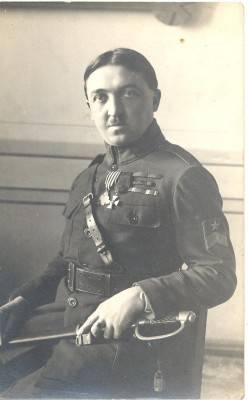
At the congress, a provisional executive committee of the congress of the Czechoslovak army was formed. It consisted of the chiefs of three echelons. Lieutenant Stanislav Chechek (1886-1930), an accountant by profession, at the time of the outbreak of the First World War, worked in the representative office of Skoda in Moscow. He volunteered to join the Czech squad, participated in the war, commanding a company, and then a battalion. 6 September 1917 of the Chechek was appointed deputy commander of the 4 Infantry Regiment named after Prokop Naked. In May 1918, he headed the largest group of troops of the Czechoslovak Corps - Penza.
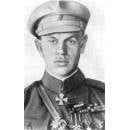 Captain Radol Gaida (1892-1948), a pharmacist by profession, passed military service in the mountain rifle regiment of the Austro-Hungarian army, then married an Albanian and settled in Shkoder. When World War I began, he was again called into the Austro-Hungarian army, but in 1915, Gaida surrendered and joined the Montenegrin army, and in 1916 he arrived in Russia and served as a doctor in the Serbian regiment, then in the Czechoslovak brigade. 26 March 1917, Gaida was appointed commander of the company of the 2 Czechoslovak Infantry Regiment. In the spring of 1918, he led all Czechoslovak troops stationed east of Omsk.
Captain Radol Gaida (1892-1948), a pharmacist by profession, passed military service in the mountain rifle regiment of the Austro-Hungarian army, then married an Albanian and settled in Shkoder. When World War I began, he was again called into the Austro-Hungarian army, but in 1915, Gaida surrendered and joined the Montenegrin army, and in 1916 he arrived in Russia and served as a doctor in the Serbian regiment, then in the Czechoslovak brigade. 26 March 1917, Gaida was appointed commander of the company of the 2 Czechoslovak Infantry Regiment. In the spring of 1918, he led all Czechoslovak troops stationed east of Omsk. Lieutenant Colonel Sergei Voitsekhovsky, a native of the nobles of the Vitebsk province, served in the Russian army since 1902, graduated from the Konstantinovsky Artillery School and the Nikolaev Military Academy of the General Staff.
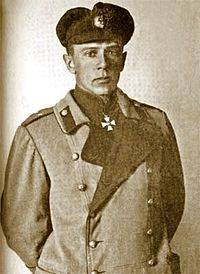 In January 1917, he was appointed Chief of Staff of 176-th Infantry Division, in February - Operations Chief of Staff 3-th Caucasus Grenadier Division, and then served as chief of staff 126-th Infantry Division, from August 1917 years actually served as chief of staff 1-th Czechoslovak division of the Russian army. In February 1918, he became the commander of the 3-th Czechoslovak behalf of Jan ижižka Rifle Regiment, and in May 1918 was appointed senior military commander of the Czechoslovak troops in the Chelyabinsk region. Under his command, on the night of 26 on 27 of May 1918, part of the 2 and 3 of the Czechoslovak infantry regiments without loss established control over Chelyabinsk. In June 1918, Wojciechowski was promoted to colonel and led the Western Group of Forces, which included the 2 and 3 Czechoslovak infantry regiments and the Kurgan Marching Battalion. Czechoslovak troops under the command of Colonel Wojciechowski occupied Troitsk, Zlatoust, and then Yekaterinburg.
In January 1917, he was appointed Chief of Staff of 176-th Infantry Division, in February - Operations Chief of Staff 3-th Caucasus Grenadier Division, and then served as chief of staff 126-th Infantry Division, from August 1917 years actually served as chief of staff 1-th Czechoslovak division of the Russian army. In February 1918, he became the commander of the 3-th Czechoslovak behalf of Jan ижižka Rifle Regiment, and in May 1918 was appointed senior military commander of the Czechoslovak troops in the Chelyabinsk region. Under his command, on the night of 26 on 27 of May 1918, part of the 2 and 3 of the Czechoslovak infantry regiments without loss established control over Chelyabinsk. In June 1918, Wojciechowski was promoted to colonel and led the Western Group of Forces, which included the 2 and 3 Czechoslovak infantry regiments and the Kurgan Marching Battalion. Czechoslovak troops under the command of Colonel Wojciechowski occupied Troitsk, Zlatoust, and then Yekaterinburg. Since the beginning of the uprising of the Czechoslovak Corps, its units and subdivisions no longer submitted to the Czechoslovak National Council in Moscow and did not comply with the order of Tomas Masaryk about surrendering weapons. By this time, the Czechoslovakians had already considered the Bolshevik government as potential allies of Germany and were going to continue the war with Germany and Austria-Hungary in alliance with the anti-Bolshevik Russian formations. It was under the control of the Czechoslovak troops that the formation of alternative to the Soviets authorities in those cities controlled by units of the Czechoslovak Corps began. Thus, in Samara, the Committee of members of the constituent assembly (Komuch) was organized on June 8, and the Provisional Siberian Government was established on June 23 in Omsk. The People’s Army of Komuch was created, whose chief of staff was Colonel Nikolai Galkin. The Independent Infantry Brigade of Lieutenant Colonel Vladimir Kappel became the most reliable part of the People’s Army of Komuch.
In July, the Czechoslovak units, in alliance with the Kappelists, took Syzran 1918, then the Czechoslovak troops took Kuznetsk, Tyumen, Yekaterinburg, Irkutsk and Chita. However, the command of the Red Army managed to quickly mobilize impressive forces of the Red Army to suppress the uprising of the Czechoslovak Corps. Soon the Czechoslovaks managed to knock out of Kazan, Simbirsk, Syzran, Samara. By the autumn of 1918, the great losses of the Czechoslovak troops led the command of the Czechoslovak Corps to the decision to withdraw the Czechoslovak units to the rear. Czechoslovak units dispersed along the Trans-Siberian Railway and did not take part in the hostilities against the Red Army. Separate Czechoslovak units continued to serve for the protection of objects and even for the liquidation of partisans in Siberia, but the activity of the Czechoslovak Corps in the 1919 year was becoming less and less. During the retreat of the Kolchak troops, the Czechoslovak Corps largely impeded the movement of Kolchak troops to the east. Along the way, the Czechoslovakians took part of the gold reserves of Russia, which was under their control during the retreat. They also issued a red admiral Kolchak.
In December 1919, the first parts of the Czechoslovak Corps began to go on ships from Vladivostok to Europe. In all, 42 72 military personnel from the Czechoslovak Corps were evacuated from Russia on 644 ships. Corps losses in Russia amounted to about 4 thousand people killed and missing.
Many veterans of the Czechoslovak Corps subsequently made serious military and political careers in independent Czechoslovakia. Thus, the former commander of the Czechoslovak Corps, General Jan Syrovy, served as Chief of the General Staff, then Minister of National Defense and Prime Minister. Sergei Voitsekhovsky served in Czechoslovakia to the rank of army general, by the time the country was seized by the Nazis, he commanded the Czechoslovak 1 army. Lt. Gen. Radola Gaida served as deputy chief of staff of the Czechoslovak army, then actively engaged in political activities. Stanislav Chechek reached the general, commanded the 5-th Infantry Division of the Czechoslovak Army.
Given the complexity of the situation at that time, it is not possible to evaluate the actions of the Czechoslovaks unequivocally. But it must be recognized that the uprising of the Czechoslovak Corps played a very important role in the history of revolutionary Russia, becoming one of the key impulses for the beginning of the Civil War in the country.
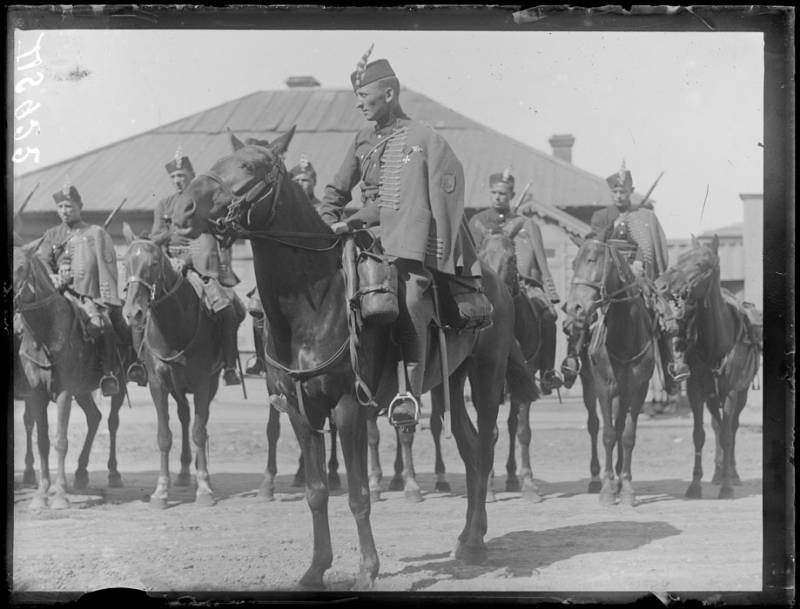
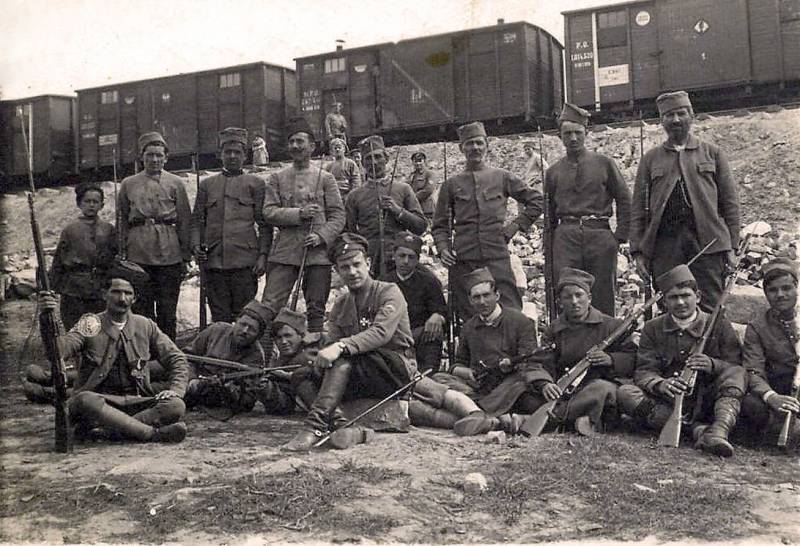
Information